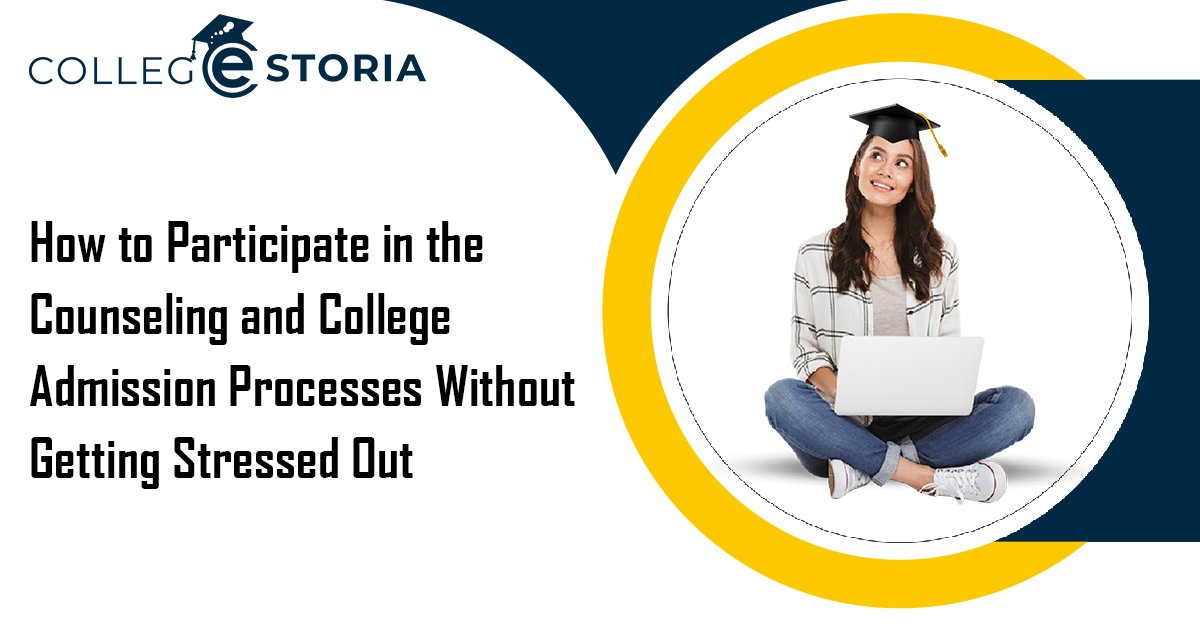The college admission and counselling processes can be daunting, with many students and parents feeling overwhelmed by the sheer magnitude of decisions to be made. Whether you are going for an undergraduate program like MBBS or a postgraduate program like MD/MS Admission in India, counselling stress could prove to be intimidating. Nonetheless, these procedures can be managed without giving in to stress if the appropriate strategy and attitude are used. In this blog, we’ll explore effective strategies for participating in college admission and counselling without feeling overwhelmed, while also addressing potential stressing factors along the way.
Understanding the College Admission and Counselling Processes
Before delving into tips for reducing stress, it’s important to have a clear understanding of the college admission and counselling processes. College admission involves researching potential schools, completing applications, and submitting required documents. Counselling, on the other hand, may include meeting with guidance counsellors, attending college fairs, and seeking advice from admissions professionals. Collegestoria is a college counselling platform that provides expert guidance for top engineering, management and medical colleges in India. If you are seeking NEET PG Admission in India, admission in engineering, or admission in management, Collegestoria could prove to be a helpful partner to guide you in your pursuit of a shining future.
Potential Stressing Factors
High Expectations: Students and parents may place undue pressure on themselves to gain admission to prestigious institutions or meet unrealistic academic standards.
Fear of Rejection: The fear of rejection from top-choice schools can lead to anxiety and self-doubt, especially if students have invested significant time and effort into their applications.
Decision Overload: The abundance of college options and the multitude of factors to consider, such as location, cost, and program offerings, can leave students feeling overwhelmed and uncertain about their choices.
Time Constraints: Time constraints, stress and pressure can result from juggling college applications with academic courses, extracurricular activities, and other obligations.
Financial Concerns: The rising cost of higher education and uncertainty about financial aid packages can cause significant stress for students and families, especially those with limited financial resources.
Strategies for Reducing Stress
Start Early: Begin the college admission process well in advance to alleviate time pressures and allow for thorough research and preparation.
Set Realistic Expectations: Encourage students to set realistic goals and expectations for themselves, focusing on finding the best fit rather than chasing prestige.
Practice Self-Care: Encourage students to prioritise self-care activities such as exercise, relaxation techniques, and hobbies to help manage stress and maintain overall well-being.
Seek Support: Encourage open communication with parents, guidance counsellors, teachers, and admissions professionals for guidance and support throughout the process.
Break Tasks into Manageable Steps: Break down the college application process into smaller, manageable tasks to prevent overwhelm and facilitate progress.
Focus on What You Can Control: Encourage students to focus on aspects of the process that they can control, such as completing applications to the best of their ability, rather than fixating on factors outside of their control.
Conclusion
The college admission and counselling processes can be stressful, but with proactive planning, realistic expectations, and support from others, students can navigate these challenges successfully while maintaining their well-being. By focusing on self-care, seeking support, and approaching the process with a positive mindset, students can minimize stress and maximise their chances of finding the right college fit.
